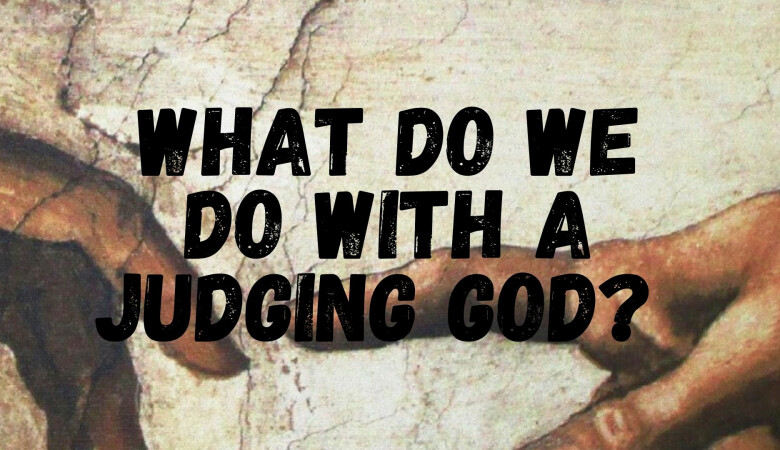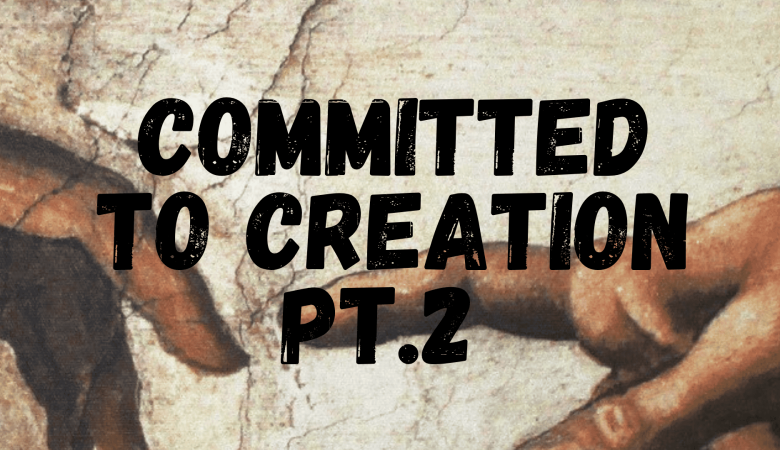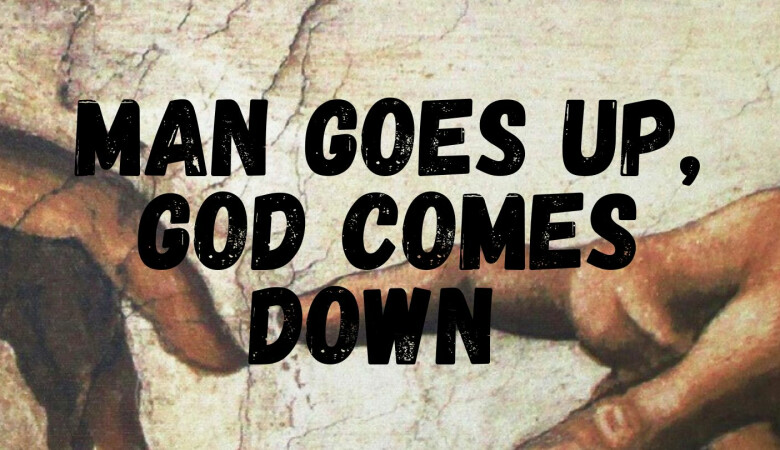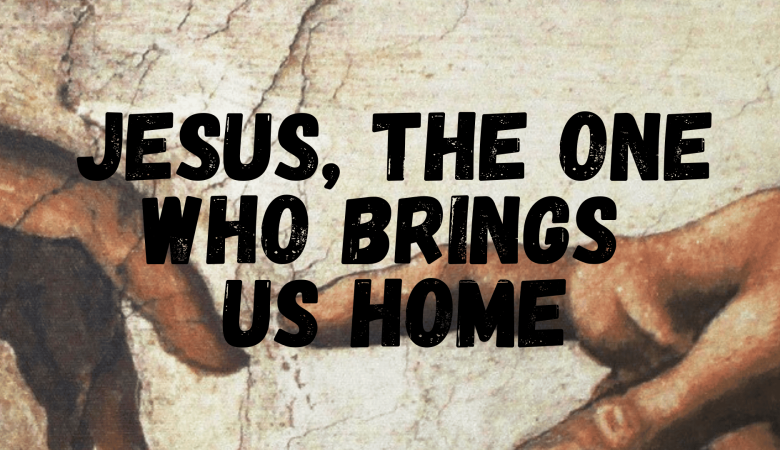Series: Created in Love
Did It Happen
November 24, 2024 | Peter Rowan
Passage: Genesis 6:13-7:24
Summary
The Noah and flood story are great stories for children, but they are also great stories for us because they are true. Yet, the story also makes for one of the reasons Christianity isn't believed. A flood of this proportions just seems, well, too supernatural. It's for this same reason that many Christians are set on proving it happened. Yet both of these positions are wanting certitude while the Bible is inviting faith.
Transcript
One of the questions I get from my kids with some regularity is this: “Did you play Wordle yet?” Melise and I played most days this summer and it became something of a competition, though, quite honestly, the kids were more into the competition part of it than Melise and I were. Well, neither of us like loosing. BYT, babe, I played this morning and I got it in 4, so see if you can beat that! Anyway, we love this game in our house. You probably know the game, you get 6 chances to guess that days 5 letter word. And there are lots of 5 letter words. Anyway, we got really into it and we had our favorite first word guesses. Like mine is typically the word “Scale” and if that’s very productive it then goes to “Irony” because at that point you’ve used all vowels but “u” and really common consonants like “S”, “R” “L”, “N” and “C”. Anyway, one word leads to another. Out of Wordle I got into playing another game on the NYT games app called connections. There are 16 words and you have to connect the ones that go together. An easy one might be “White” “Cold” “Drink” and “Cow” and you would guess “Milk”. Word associations. I love these games.
So, let’s play a couple Bible word games:
Thomas, Judas, Andrew and Matthew - Jesus Disciples
Frogs, Darkness, Locust, Hail - 10 plagues in Egypt
Ephesians, Thessalonians, Colossians and Philippians - Letters written by Paul. Or, words ending in -ians.
Jonah in the wale, David and Goliath, Daniel in the Lion’s Den and Noah and the Ark - Kids OT stories
Yeah, kids stories.
How about this one:
Leviathan, the Loch Ness Monster, Jesus walking on Water, and the Flood.
Hmm. Maybe that one is a little trickier. Water stories? Water myths? Make-believe water stories?
The truth is for a lot of the world, we come to some of the great stories in the OT and we think these are good stories for kids, maybe, maybe they are good stories to teach morals, but they are a little too fanciful at times and probably not worth believing and certainly not worth orienting your life around them!
But here is another thing: do you know that there is an official website that records sightings of the loch ness monster? The current count is 1,159. Not bad.
Did you know that there is a PA Bigfoot society. And that there is a Bigfoot podcast that is all about telling the stories of bigfoot sightings.
And you may laugh at that, but I’m fairly certain that that is how many people come to the text of Genesis 6 and 7 and, of course, so many other parts of the Bible. A good story, but fanciful.
And for this reason there are all kinds of Christians out there that have dedicated their lives to trying to prove that the geological record supports a worldwide flood.
So, did it happen?
Last week we looked at the idea of the judgement of God and how that idea can be so off-putting to so many, but there is good reason for us to desire God and not us as the judge.
Ok, maybe this seems like an odd sermon, but I want to push you into belief in God and his judgement and his grace, by telling you that on the one hand that it’s far more likely that this happened than some of you might think and also that it is at least someone possible that this didn’t happen in the way that others of you might think, which is to say, I want to invite us into humility but then into faith.
So, point 1: You might be wrong.
Ok, that’s my first point. You might be wrong.
I want to draw your attention to a few verses in this passage. First. verses, 14-16.
14 Make yourself an ark of gopher wood. Make rooms in the ark, and cover it inside and out with pitch. 15 This is how you are to make it: the length of the ark 300 cubits, its breadth 50 cubits, and its height 30 cubits. 16 Make a roof for the ark, and finish it to a cubit above, and set the door of the ark in its side. Make it with lower, second, and third decks.
Ok, now, look with me down at verse 2 of chapter 7:
Take with you seven pairs of all clean animals, the male and his mate, and a pair of the animals that are not clean, the male and his mate, 3 and seven pairs of the birds of the heavens also, male and female, to keep their offspring alive on the face of all the earth.
Ok, now 7:11-13
11 In the six hundredth year of Noah’s life, in the second month, on the seventeenth day of the month, on that day all the fountains of the great deep burst forth, and the windows of the heavens were opened. 12 And rain fell upon the earth forty days and forty nights. 13 On the very same day Noah and his sons, Shem and Ham and Japheth, and Noah’s wife and the three wives of his sons with them entered the ark
Why am I having us read these again? Specificity. Specificity. There are exact dimensions, there are exact animal numbers for sacrifice and to keep others alive and there is an exact day in the life of Noah.
One of the best books in recent years about the defending the gospel texts as true history is Jesus among the Eyewitnesses by Richard Baucham who taught at St Andrews and is now a senior scholar in Cambridge. The basic gist of that book is that book is that the level of detail - like those people who are named specifically in certain events and others who are not-named - and the fact that these are early enough texts that they could have been disputed should cause anyone to take them as historically accurate and written by eyewitness to Christ and what he did.
Anyway, Genesis 6 and 7 are telling us. This happened!
But I get it, if you are skeptical to the Bible and then you come to the text and you hear this wild story of this great flood and you think, well, the Bible may be communicating to me that this really happened, but I don’t believe the Bible to be authoritative anyway, so whatever.
Well, here’s what I want to pose to you. The ancient world was full of flood stories. The summaries had a flood story and the Akkadians and there is the most famous flood story in the great Babylonian work The Epic of Gilgamesh. We’re going to talk about this a little next week. But the flood stories aren’t just limited to the ancient near east. Not even close. Nearly every civilization in the history of world has a story about a giant flood. Almost every one. The Mayans do and the Aztec do in Central America, there are the Jipohan and Kaingang and others in South America, there are ancient flood stories in china and India and Korea and Siberia and Thailand. The Cornish and Welsh and Irish in great Britain have flood stories. Here in the Us, many of our native tribes have flood stories. The Susqhehannock propel who lived here were part of the Algonquin who had a flood story. The Cree have a flood story. And the Choctaw have a flood story. Up in Washington State, where I am from, the Nisqually have a flood story and the Skagit have a flood story.
Let me read you some from that Skagit story:
“When people started talking to the trees the change came in the form of a flood. When the people saw the flood coming, they made a giant canoe and filled it with five people and a male and female of all plants and animals. Water covered everything but the summit of Kobah and Takobah (Mts. Baker and Ranier). The canoe landed on the prairie.”
Ok, so you might just think all of it is myth to not be taken seriously as really happening. But what do you make of this world-wide collective memory of a great flood? I mean, if there are stories from just about every civilization in the history of the world that there was a great flood, I’m going to go with there having been a great flood.
So, my first point is that this text invites us to believe that this is real history, that this really happened.
So, my first point is for those of you who take the text as fanciful and another reason to doubt the Bible. And the point is just this: You might be wrong.
My second point is this:
2: You might be wrong.
“Well, that’s weird, Peter, that’s what your first point was!” That’s true. But I want to speak this point more to you all who you are inclined to say that you must always take every part of scripture absolutely literally for it to be true truth.
The inclination of many Christians is to say that we have to show, we have to prove, that there was a worldwide flood or the text of Scripture is undermined and our faith is compromised.
But there is a real problem. Even as I read my usual commentaries this week, written by scholars that believe the Bible to be without error, the consistent thing that stood out to me was how these Bible scholars acknowledge that the best geological evidence does not point to a world-wide flood. Now, I am not a geologist and I’m not going to even pretend to be.
But look at verses:
17 The flood continued forty days on the earth. The waters increased and bore up the ark, and it rose high above the earth. 18 The waters prevailed and increased greatly on the earth, and the ark floated on the face of the waters. 19 And the waters prevailed so mightily on the earth that all the high mountains under the whole heaven were covered. 20 The waters prevailed above the mountains, covering them fifteen cubits deep.
It doesn’t just say “earth”, but it says that “all the high mountains” were covered. And it says that they were covered by 15 cubits, which would have been the amount of covering needed to make sure the ark was fully floating.
So, was there water 15 cubits over Mount Everest?
I want to tell you who say “Absolutely!” that you might be wrong.
Hear me out.
Take the word “mountain”. When I moved to the East Coast and crossed over the Blue Ridge Mountains in Virginia on my way to Richmond, I just sort of laughed. I mean, I hate to admit this here, but I continue to chuckle inside when we talk about the hills outside of Harrisburg as mountains. I know that feels a little insulting to some of you. I’m sorry. Mount Rainier is a mountain, Mount Baker is a Mountain. Mount St Helen’s is a Mountain. These are hills. But in the Bible the Temple was built on a mountain, which we would consider a hillock.
Later on in Genesis, in chapter 41 we read that “all the earth” came to Egypt came to Egypt to Joseph to buy grain because the famine had spread “over all the land.” No Bible-believing scholar takes that to mean that every single people group throughout the whole world at that time came to Egypt.
Let’s go to the new testament. In Acts 2 we are told that devout men “from every nation under heaven” were in Jerusalem”, but then we have listed for us the nations from which they came and it represents the Jews of the diaspora.
So, what do we make of this? The fact is that the Bible often uses this kind of language to describe the known world or the effected world and the world of the early chapters of Genesis was the wold of Mesopotamia. Genesis 2 has already set us up to understand that in that paragraph that some of you will remember that just talks about the rivers and the gold, the land of the Tigris and the Euphrates.
So, did it happen?
Well, all of these great civilization all over the world have these stories and some of them, like the Skagit story, mirror these chapters in uncanny way. And if all of these cultures have these stories, I’d be more inclined to believe it than to laugh it off. But did it happen as we tend to demand that it happened? Well, not if you understand ancient near eastern communication and it’s bent towards hyperbole and geographical exaggeration for a point.
Pascal wrote wisely long ago: “There is enough brightness in the Scriptures to illuminate the elect and enough obscurity to humble them.”
And all of this together should lead all of us at least to the point of humility. And humility is the very opposite of pride and pride is the very root sin and faith, as we have said is the outworking in our lives of belief that what God said is true even if we don’t see it immediately.
So, we come to the story of Noah and we are told in the New Testament in Hebrews 11: 7 By faith Noah, being warned by God concerning events as yet unseen, in reverent fear constructed an ark for the saving of his household. By this he condemned the world and became an heir of the righteousness that comes by faith.
By Noah we learn faith. We learn faith that God’s word and his warnings are true, that the events that God tells will come about, though they are unseen to us, will come about. And we learn that the judgement that God properly brings upon the unrighteous is spared upon those who live by faith.
Friends, Noah is mentioned a good deal in the New Testament. Jesus refers to Noah as an historical fact but as one that warns us agains the judgment to come.
Peter, in 1 Peter 3:18, says that baptism corresponds to the saving work of God for Noah. An act of Faith in what God has done and will do.
Friends, “Did it happen?” is a question for all of us for the whole Bible. After all, B B Warfield, the great 19th century Princeton theologian was once asked, “What is Christianity?” he replied, “Unembarrassed supernaturalism.”
Christianity is the belief that God acts the world and that he has done so decisively in Christ in the cross and the resurrection. Noah and Ark are far from just stories for children. They are calls to us to faith in the God who acts, who judges, who saves, who’s will comes to bear on this life and on you and on me. It is a call for us to live by faith, to trust, to believe in the words of God and in the act of God. And it is a call to humility.
Chuck Klosterman wrote a great book in 2016 titles But What If We’re Wrong? He said a lot of important things in that book, but here’s one: “We’re starting to behave as if we’ve reached the end of human knowledge. And while that notion is undoubtedly false, the sensation of certitude it generates is paralyzing.”
Your demand for certitude, whether you are the skeptic who just treats these stories from the Bible as fantasies for children or you are the Christian who is certain you know how and to what extent it happened will be paralyzing because both of those position will paralyze your humility which will always in turn paralyze your faith.
Series Information

The first 11 chapters of Genesis are the origin story of all that is. In it we find unexpected account. It is not written to satisfy our desire to know the “how” As we will see, these 11 chapters are far more concerned to tell us “who” creates, and what becomes of the “good" world he hands his image bearers.













